In this issue, Index on Censorship magazine explores the right of Africans to choose their rulers and establish a system of holding them accountable.
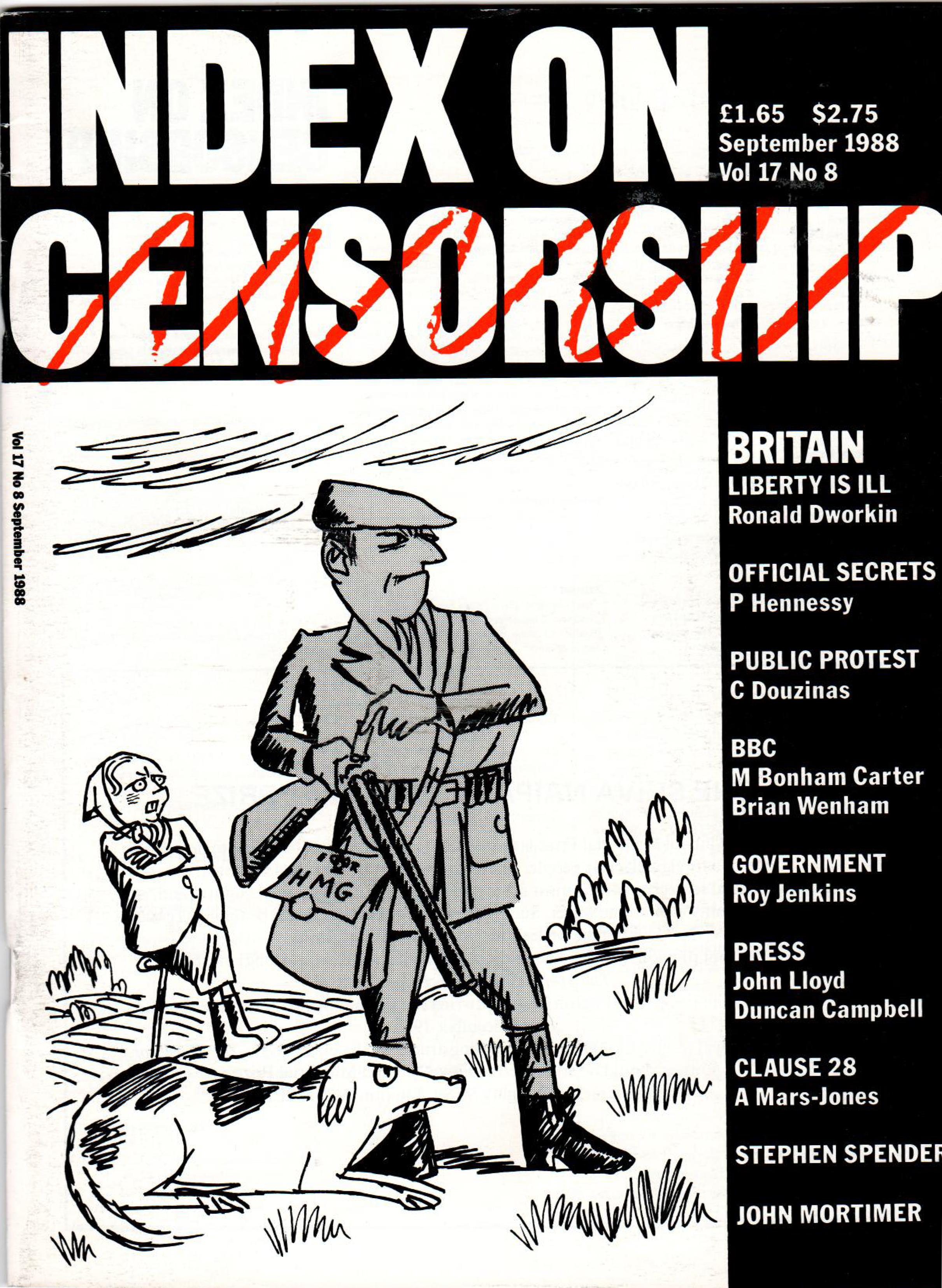

In this issue, Index on Censorship magazine explores the right of Africans to choose their rulers and establish a system of holding them accountable.
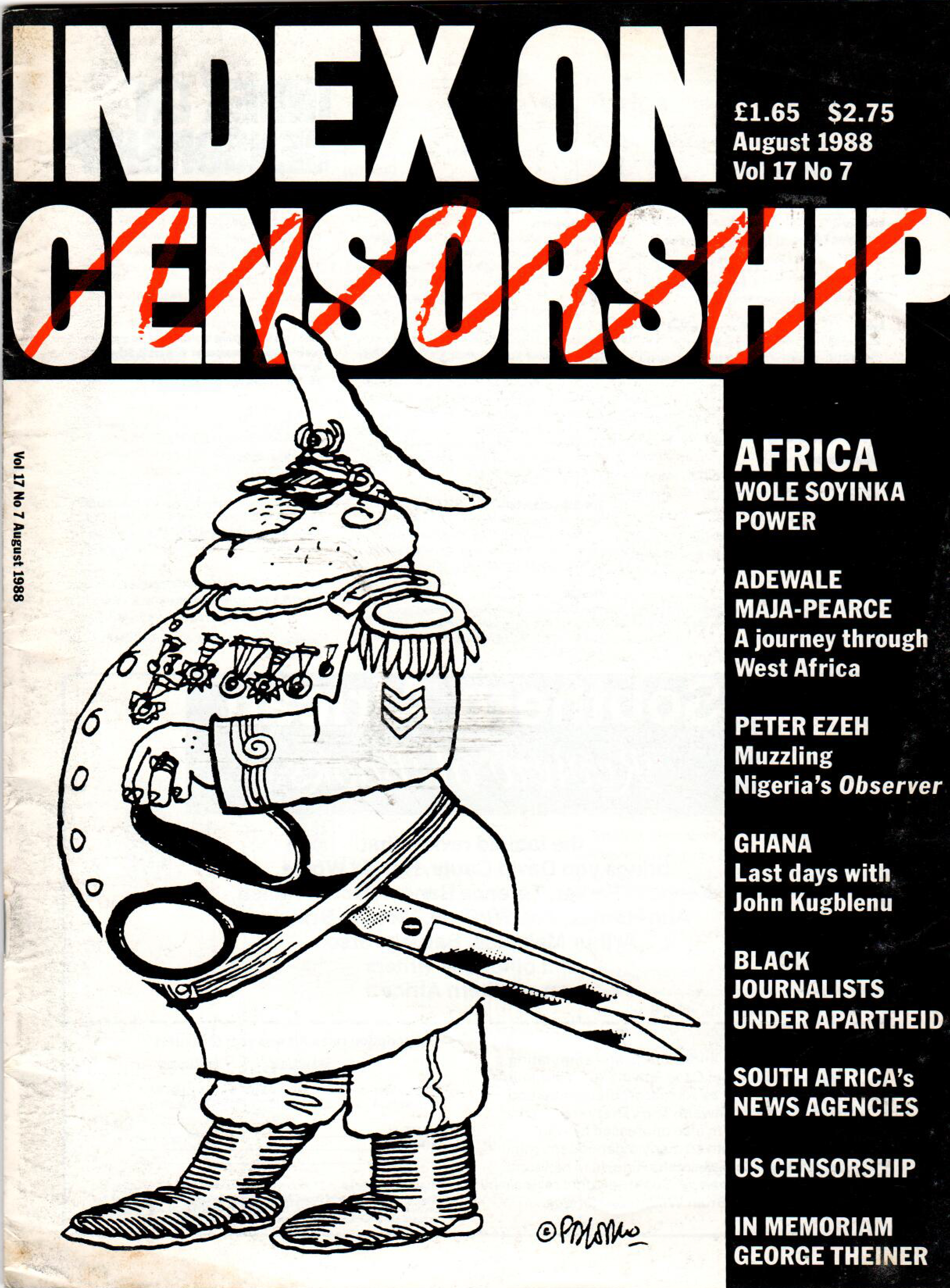
In this issue, Index on Censorship magazine explores the right of Africans to choose their rulers and establish a system of holding them accountable.

In this issue, Index on Censorship explores wide ranging censorship of books, films, and speeches related to the ‘Gang of Four’ in China.
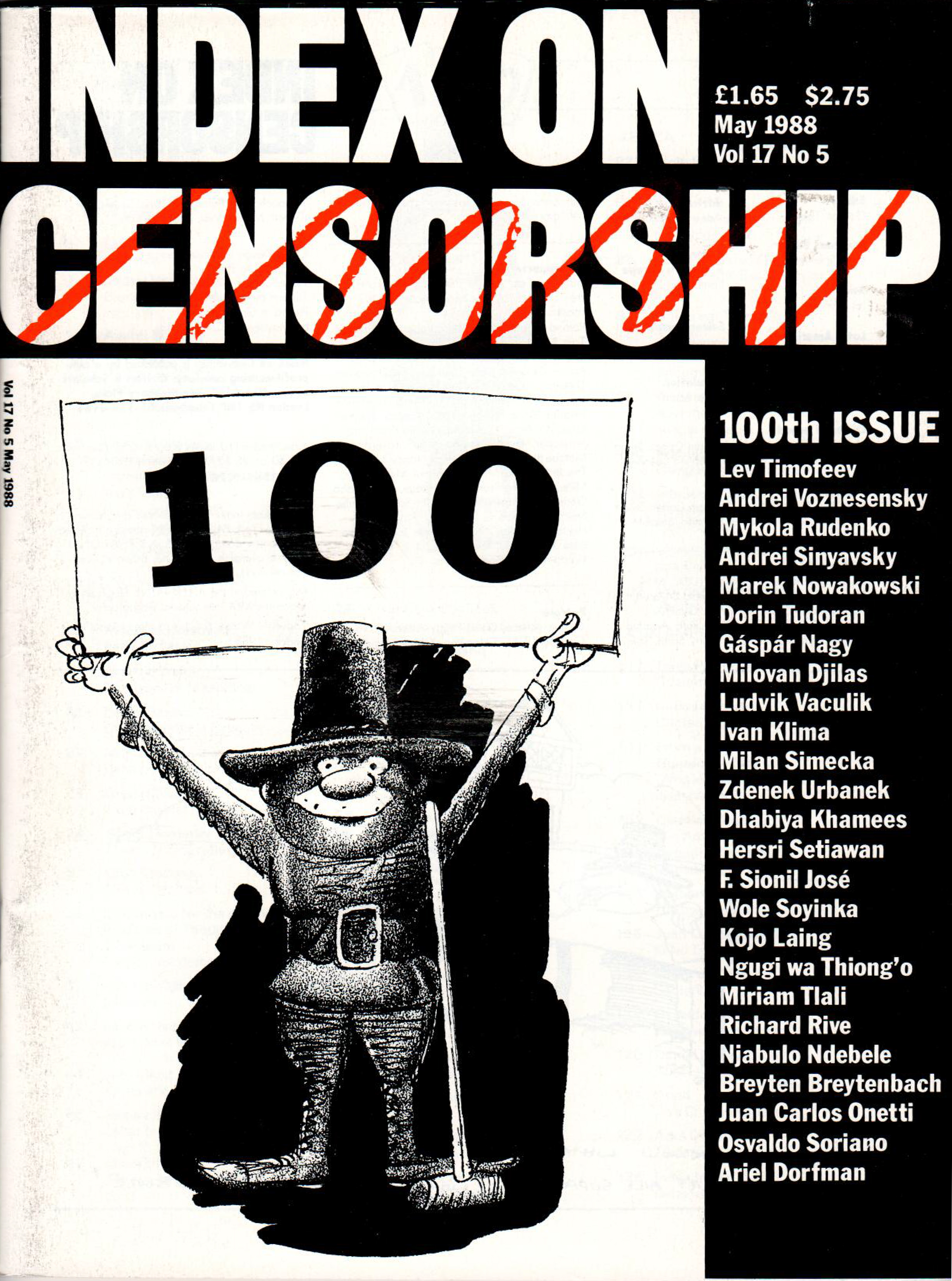
In this issue, Index on Censorship explores its role in supporting writers, scholars, and artists in the Soviet Union today and defending their right to freedom of expression.
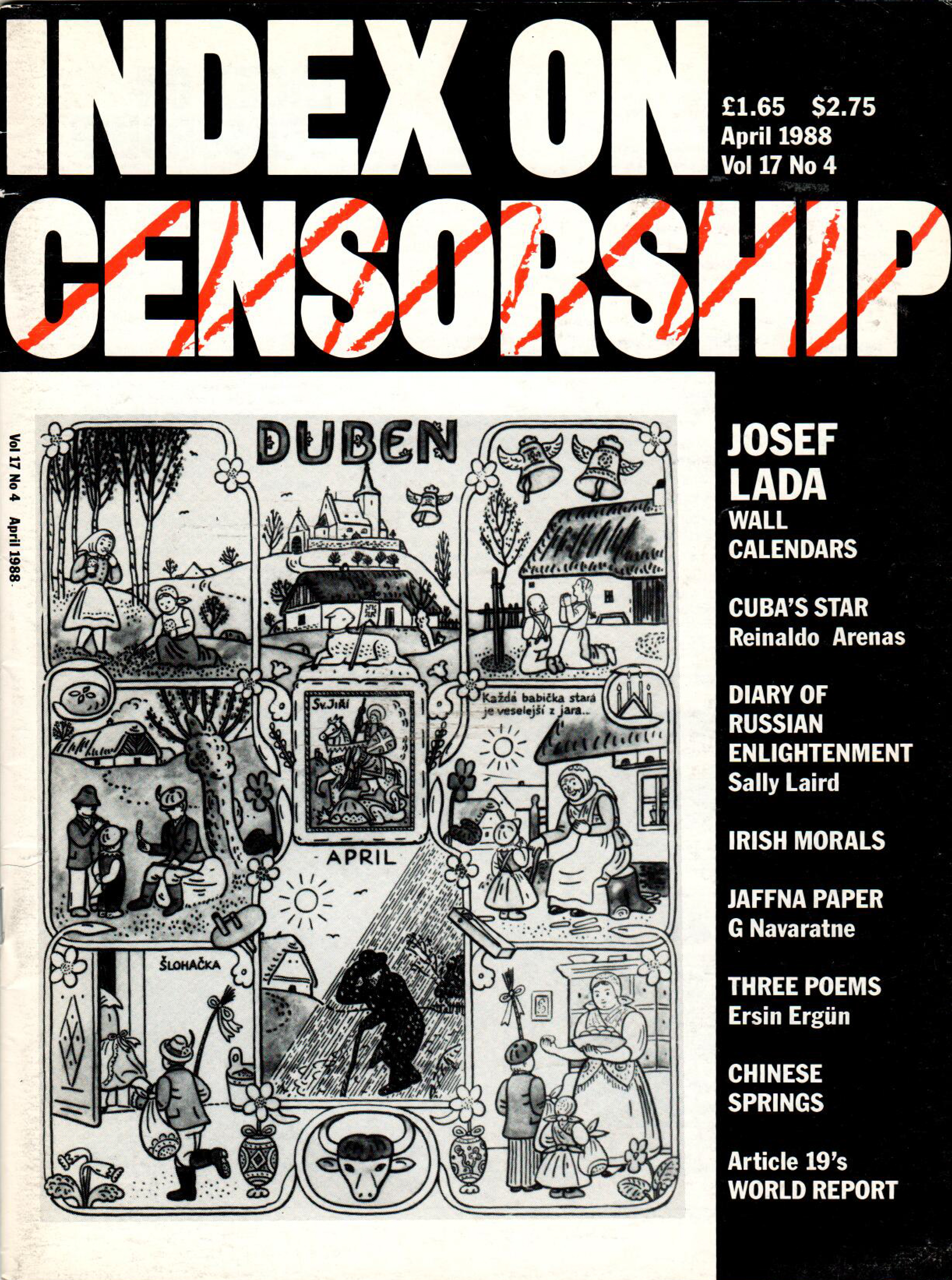
In this issue, Index on Censorship explores the difference between the degrees of freedom of expression and censorship in Czechoslovakia over a decade.
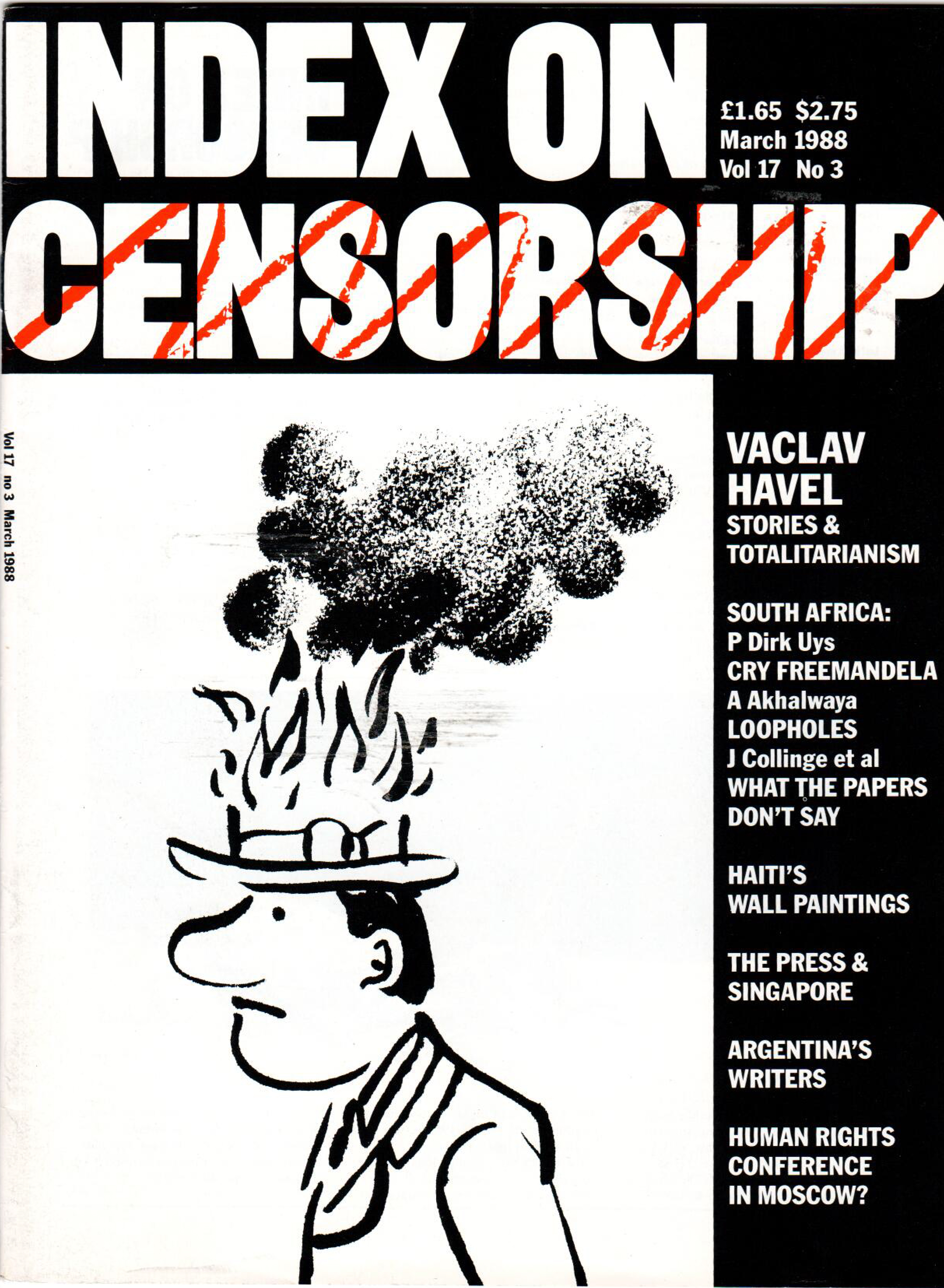
In this issue, Index on Censorship magazine explores totalitarianism and destruction of the story as the basic instrument of human knowledge and self-knowledge.
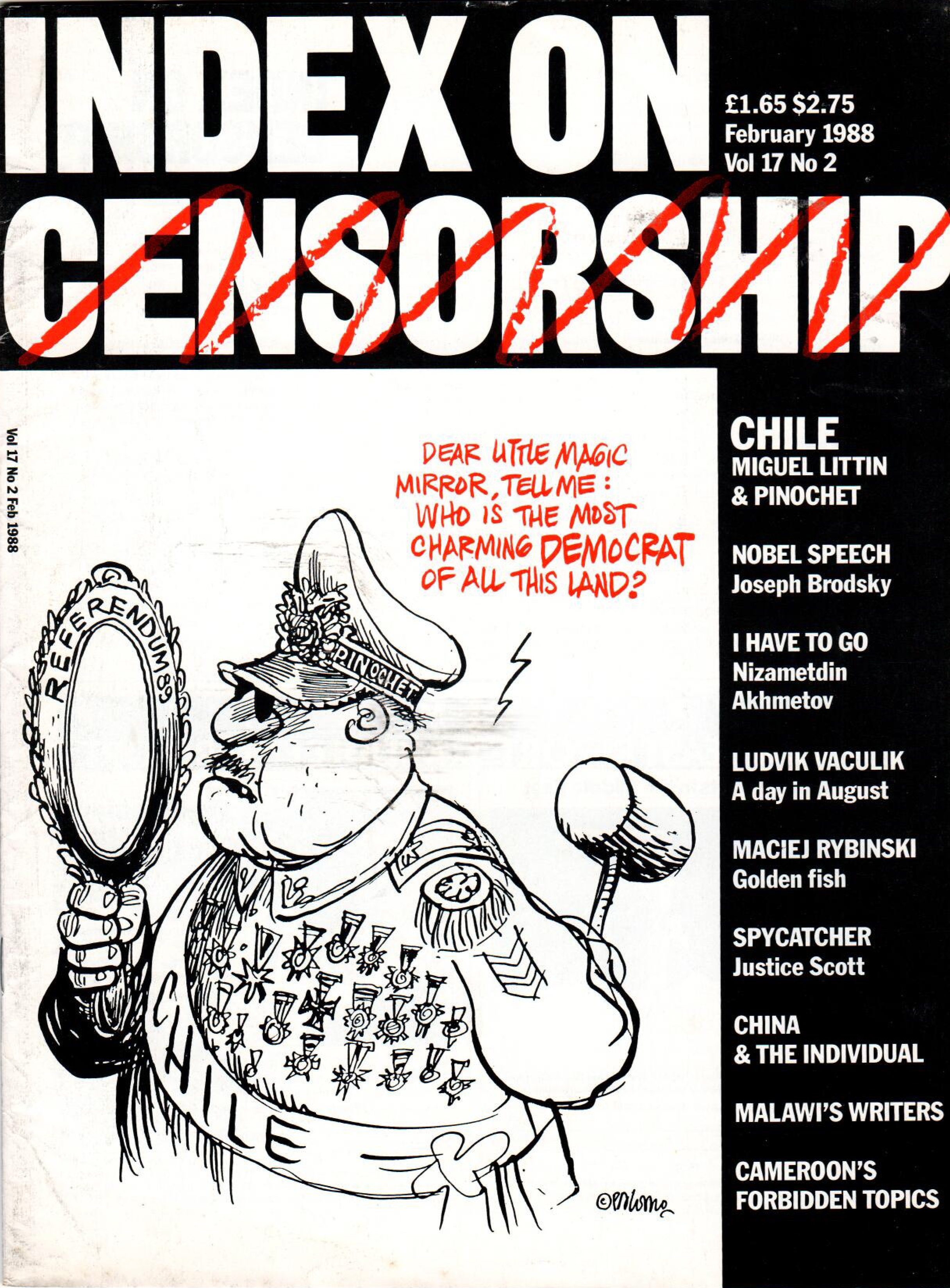
In this issue, Index on Censorship magazine explores the relationship between Pinochet’s regime and culture.
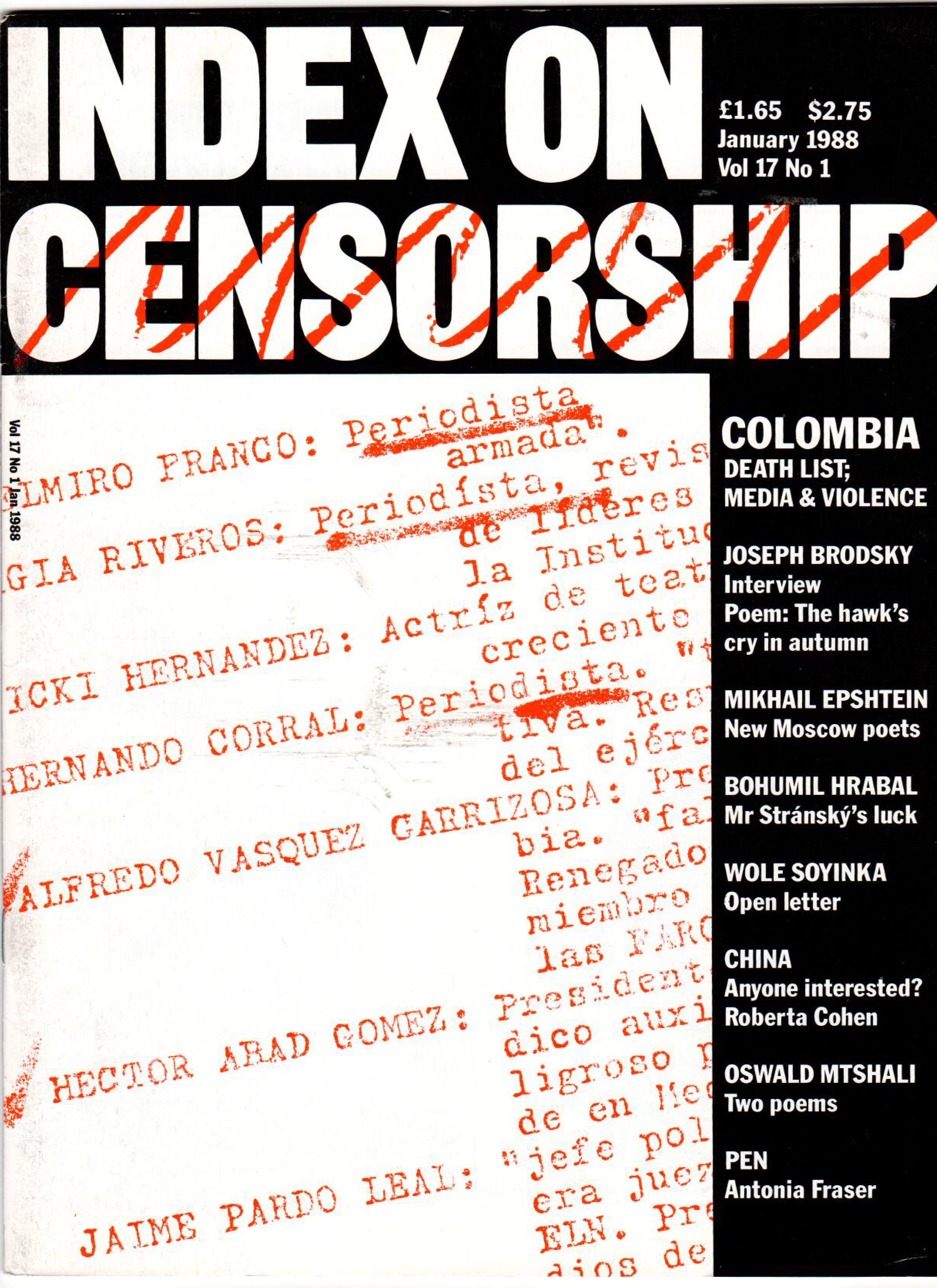
In this issue, Index on Censorship magazine explores the origins of the Medellin death list and violence in Colombia.

In this issue, Index interviews Tony Heard about his dismissal from the South African newspaper, the Cape Times, and other press issues in South Africa.
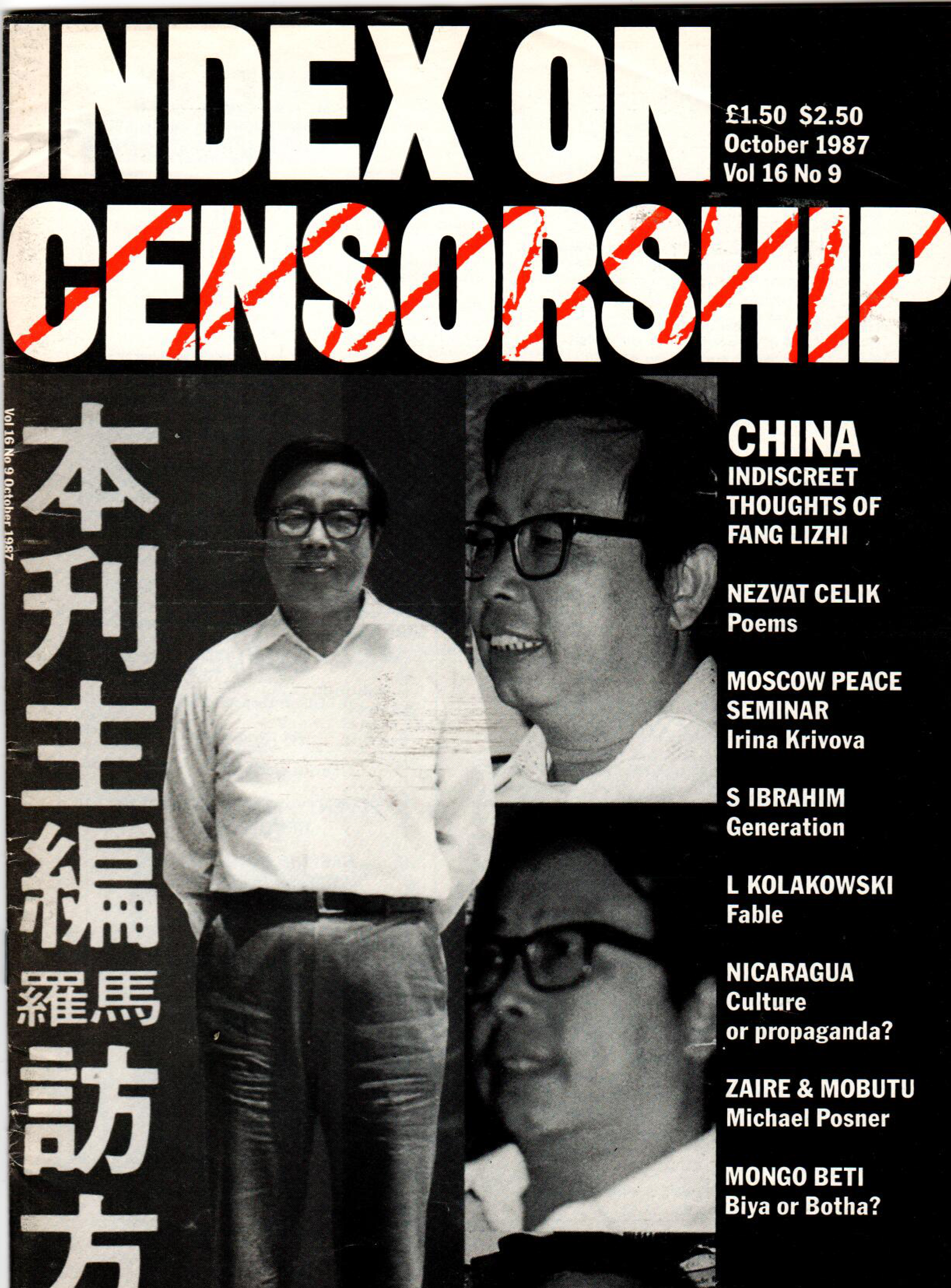
In this issue, Index interviews Academician Fang Lizhi, a vocal Chinese critic of democracy, human rights, students, and socialism within China.
A quarterly journal set up in 1972, Index on Censorship magazine has published oppressed writers and refused to be silenced across hundreds of issues.
The brainchild of the poet Stephen Spender, and translator Michael Scammell, the magazine’s very first issue included a never-before-published poem, written while serving a sentence in a labour camp, by the Soviet dissident Aleksandr Solzhenitsyn, who went on to win a Nobel prize later that year.
The magazine continued to be a thorn in the side of Soviet censors, but its scope was far wider. From the beginning, Index declared its mission to stand up for free expression as a fundamental human right for people everywhere – it was particularly vocal in its coverage of the oppressive military regimes of southern Europe and Latin America but was also clear that freedom of expression was not only a problem in faraway dictatorships. The winter 1979 issue, for example, reported on a controversy in the United States in which the Public Broadcasting Service had heavily edited a documentary about racism in Britain and then gone to court attempting to prevent screenings of the original version. Learn more.